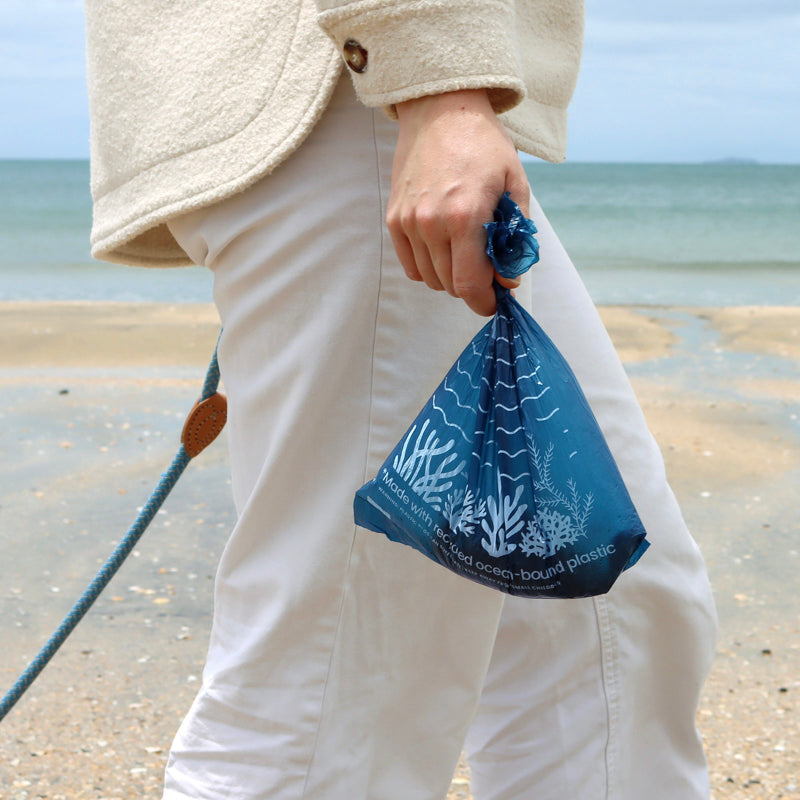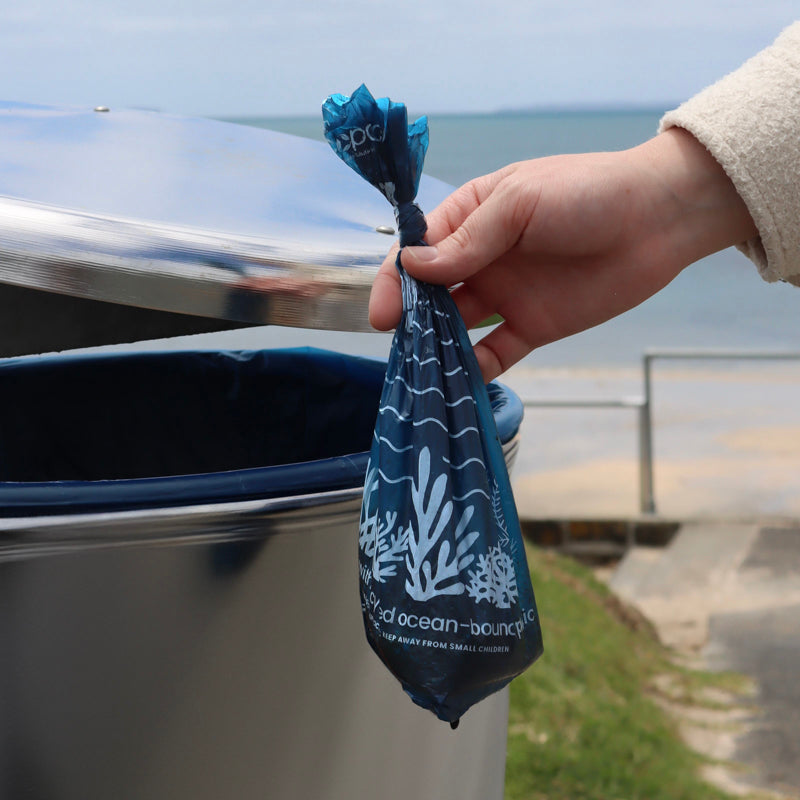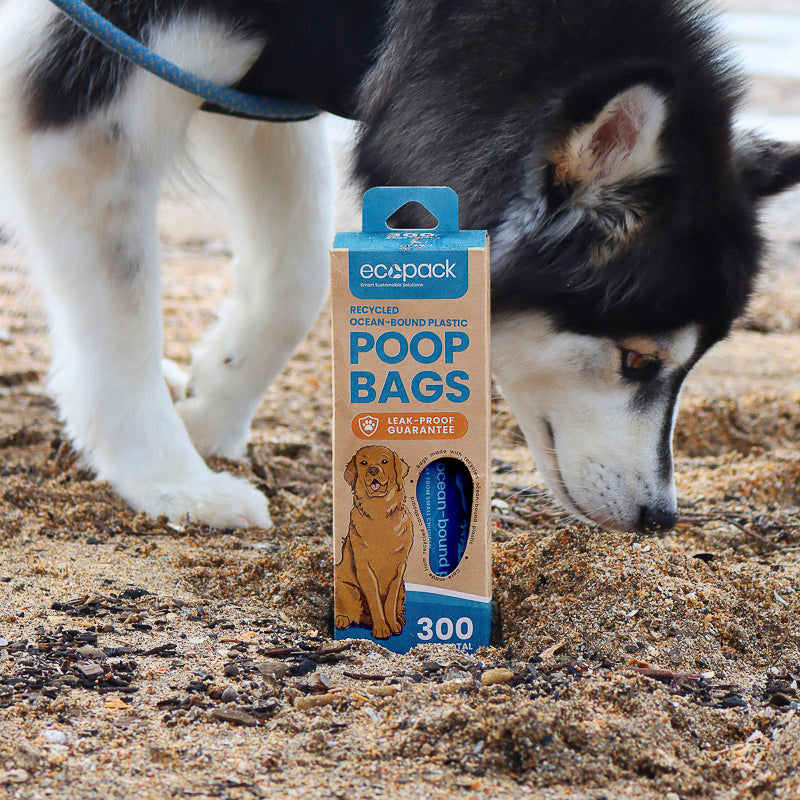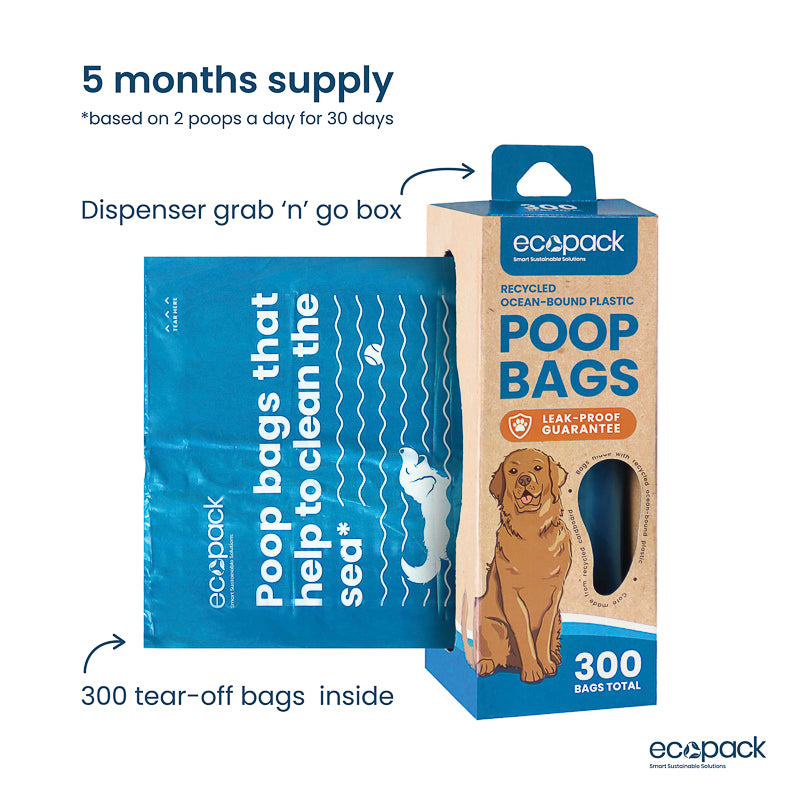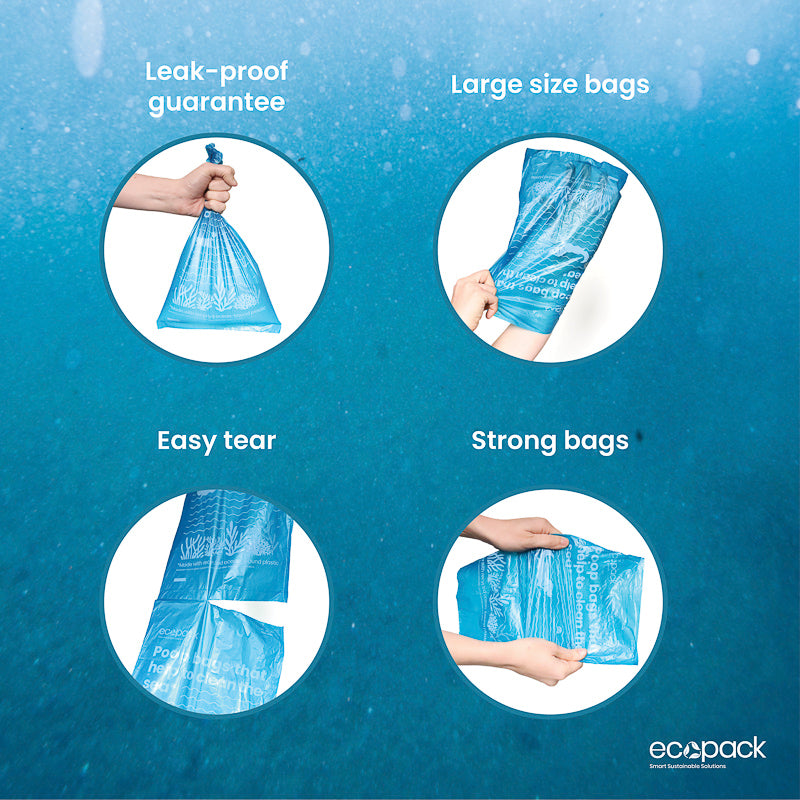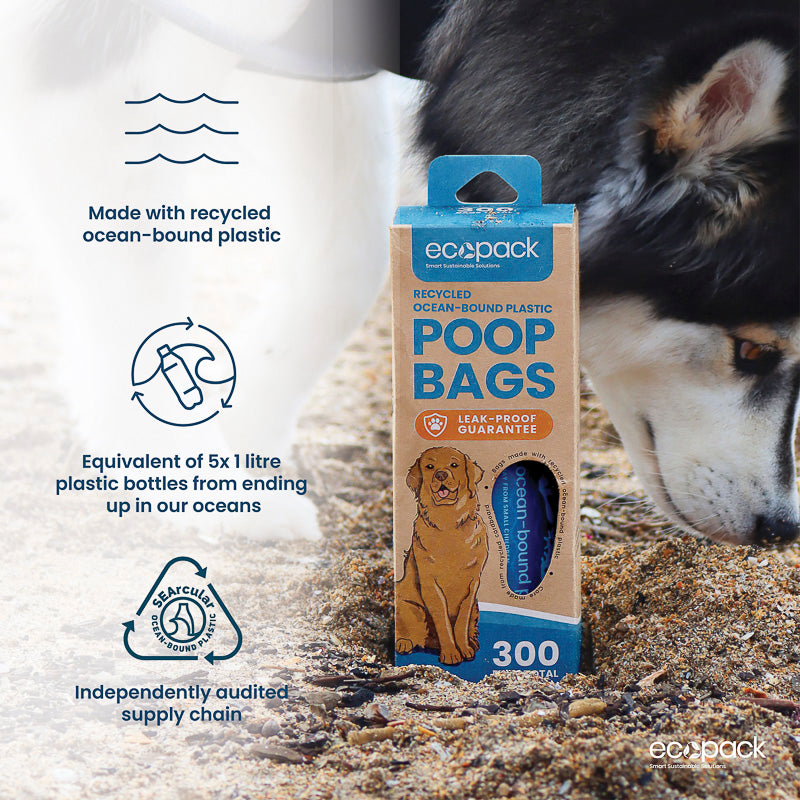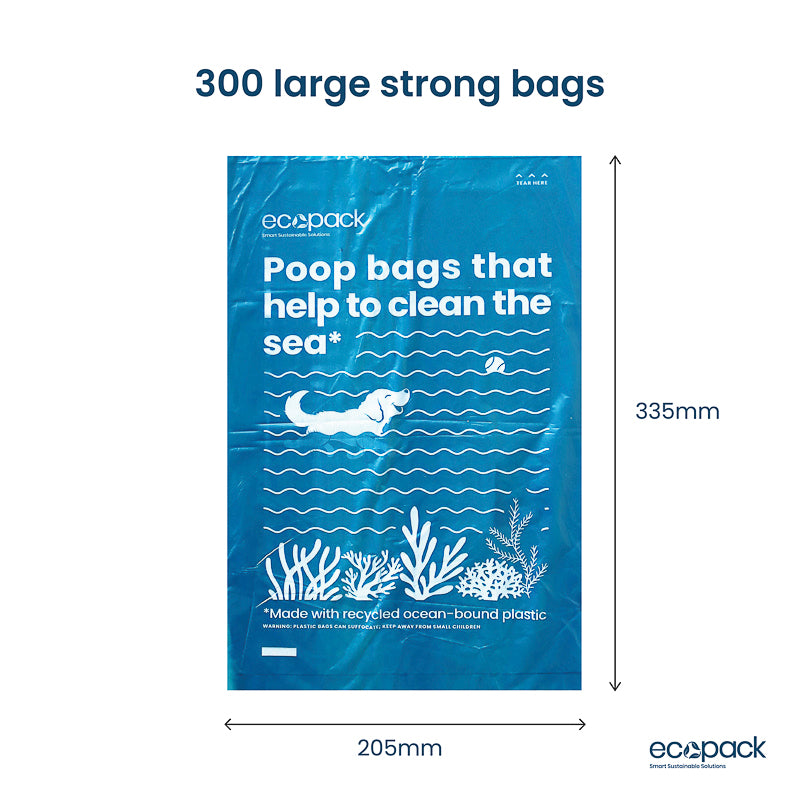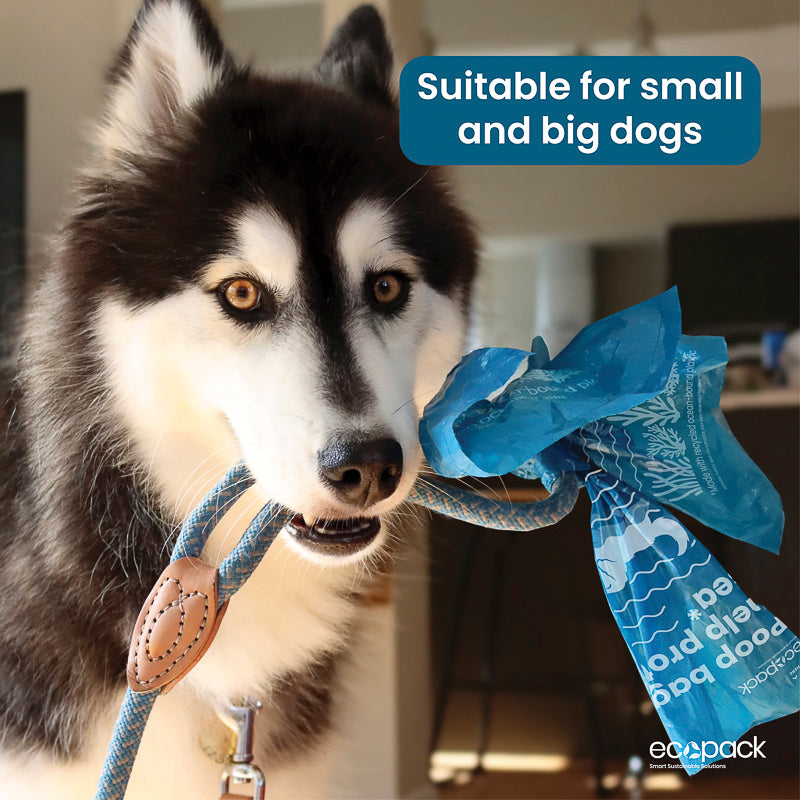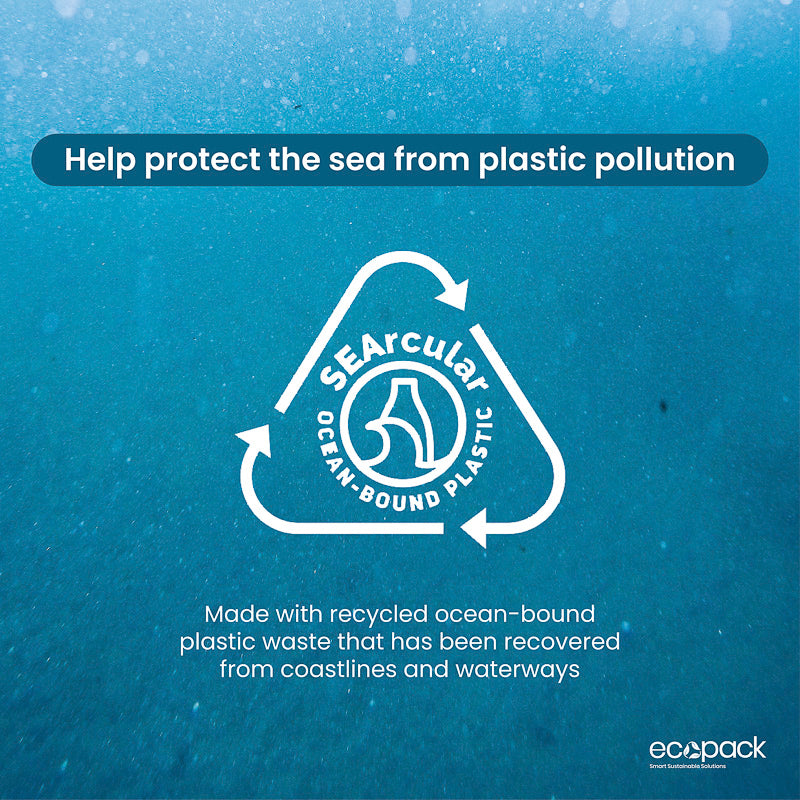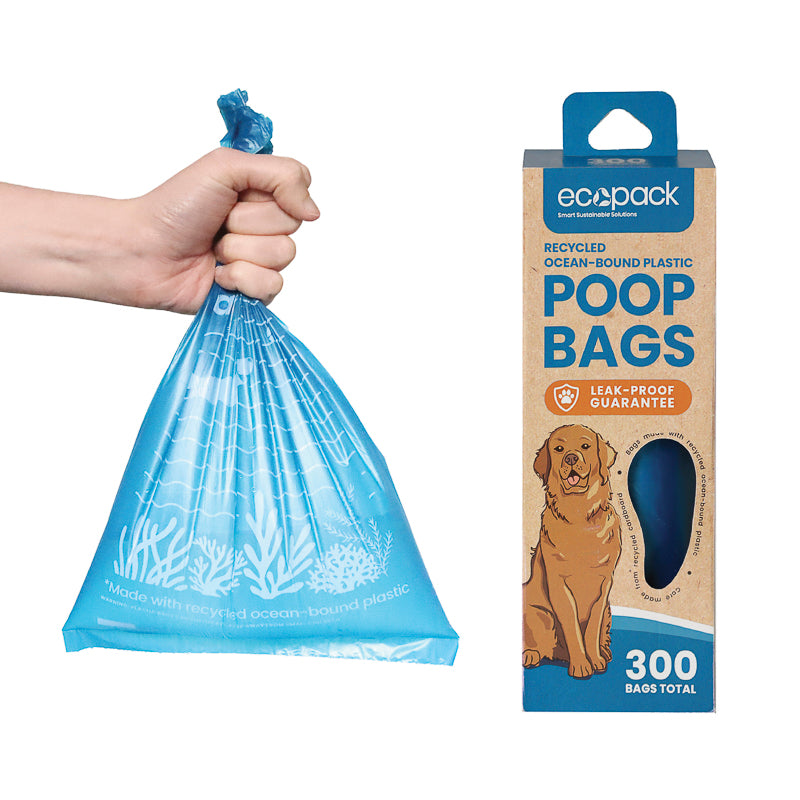
Ecopack Recycled Plastic Dog Poop Bags (Dispenser Box/300 Bags)
This dispenser box of Ecopack Recycled Plastic Dog Poop Bags houses 300 large, strong, unscented bags for easy pet poop pick-up. Perfect for storing in your pantry, car boot or with your dog lead so that you can grab and go. The roll is also designed to fit most outdoor public dispensers. These poop bags contain recycled ocean-bound plastic.
- Bag size: 205mm w x 335mm h
- Bags per box: 300
Order 12 boxes to receive one carton.







- Product Features
Every year 8 million tons of plastic waste enter our oceans. These poop bags contain recycled ocean-bound plastic waste collected from shorelines and waterways to help fight the plastic problem.
- Large robust bags to tackle any sized pet deposits
- 100% leak-proof guaranteed
- Made with recycled ocean-bound plastic to support environmental protection
- Generous size fully covers your hand and makes tying off easier
- Suitable for disposal in general waste/landfill
FAQs: Find answers to frequently asked questions about dog poop bags and ocean-bound plastic.


